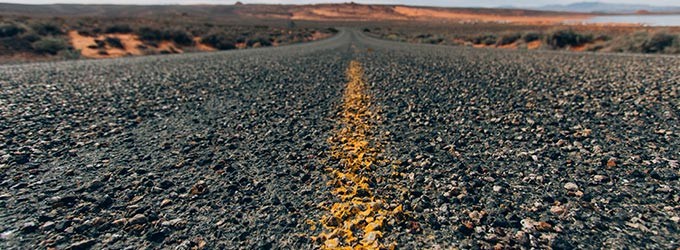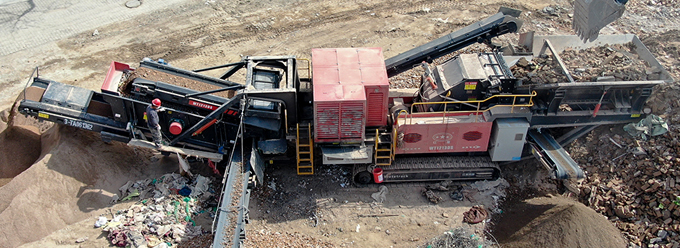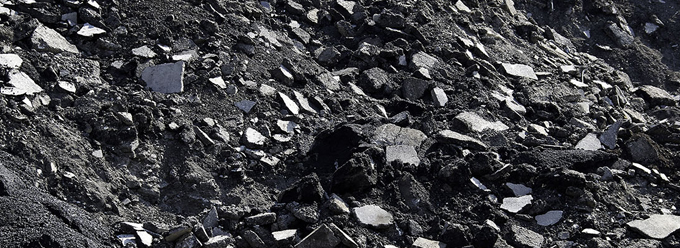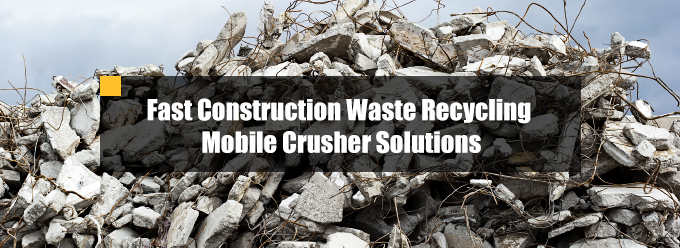Every year, millions of tons of concrete waste are generated from construction and demolition projects — taking up space, wasting resources, and increasing disposal costs.
Instead of throwing it away, this material can be turned into recycled concrete aggregate (RCA) — a cost-effective and eco-friendly substitute for natural stone.
What is recycled concrete aggregate (RCA)?
Recycled concrete aggregate (also known as recycled crushed concrete or crushed concrete aggregate) is made by processing demolished concrete from roads, buildings, or construction sites into usable aggregates.
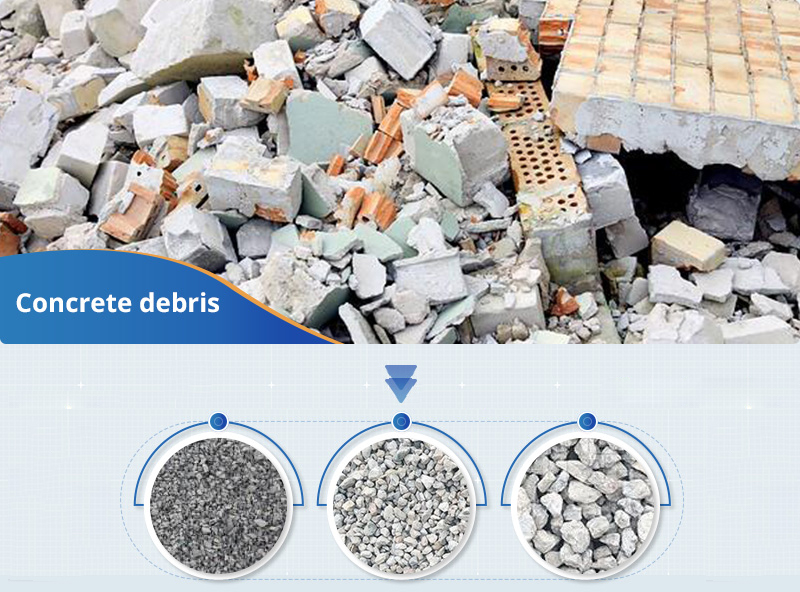
Recycled concrete aggregate can replace natural gravel or stone in many applications, especially in:
- Road base and subbase layers
- Non-structural concrete
- Paving blocks and curbstones
- Cement additives and filler materials
How recycled concrete aggregate is made?
High-quality recycled concrete aggregate is obtained through proper crushing, impurity removal, and screening to ensure uniform particle size and minimize contamination. The better the product quality, the easier it is to sell or reuse on-site.
The core process for recycling waste concrete into aggregate is: Sorting → Crushing → Screening → Iron Removal → Grading & Utilization
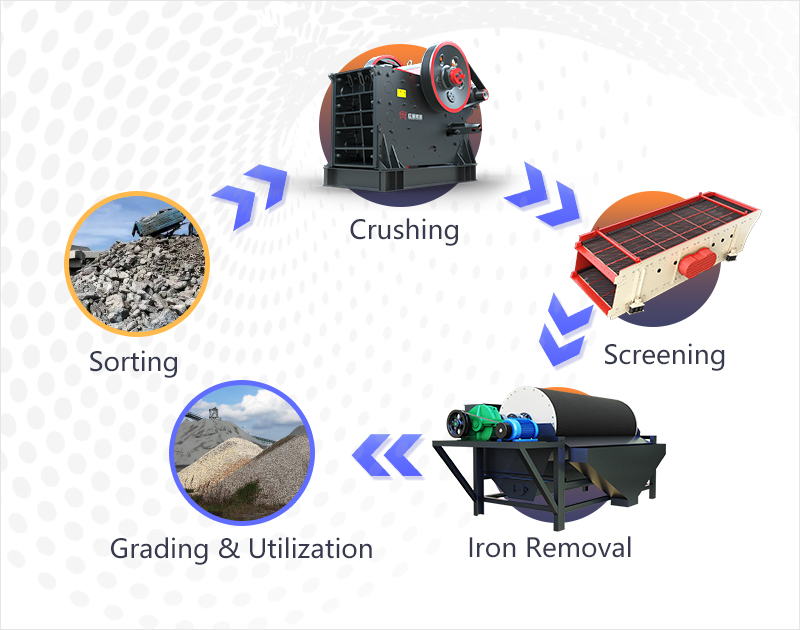
Step 1: Pre-sorting and removing impurities
Before crushing, remove large impurities such as rebar, wood, plastic, and paper from waste concrete. Early sorting reduces wear on the crushers and improves final product purity.
- Manual pre-sorting for bulky waste
- Magnetic separators to remove steel bars and metal pieces
Step 2: Primary crushing (coarse crushing)
Large concrete blocks are crushed into smaller sizes for further processing, typically below 100 mm.
Recommended equipment: Jaw crusher
The jaw crusher provides strong crushing force and high efficiency, with a capacity of up to 1,000 tons per hour. It ensures stable output and can easily handle irregular concrete blocks and reinforced concrete materials.
Step 3: Secondary crushing and shaping
The secondary crusher refines the material into uniform, well-shaped concrete aggregates.
- Concrete impact crusher: ideal for producing cubical, high-quality aggregates
- Concrete cone crusher: suitable for harder concrete and precision shaping
Better shape means better strength and fit, which is important for road base and recycled concrete.
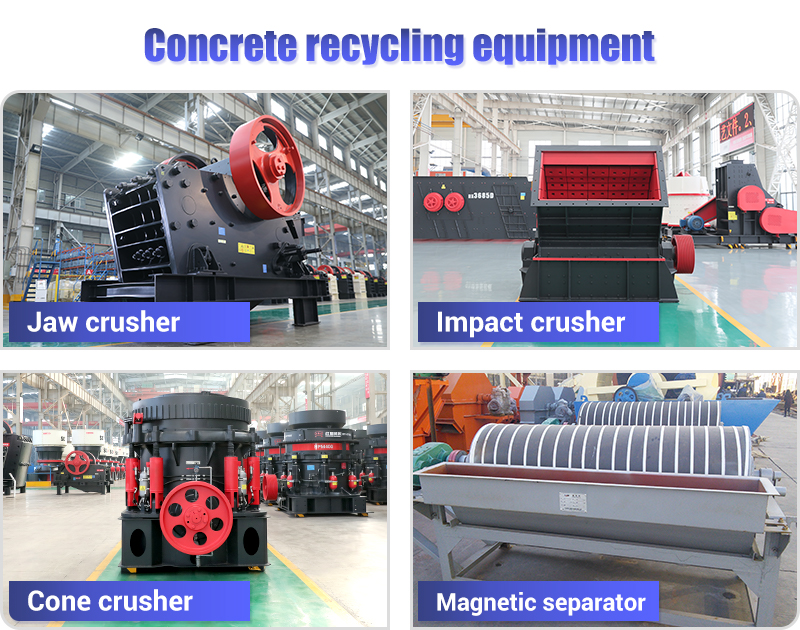
Step 4: Screening and classification
After crushing, the concrete aggregate is screened into different size fractions (e.g., 0–5 mm, 5–10 mm, 10–20 mm, 20–40 mm).
Recommended equipment: Vibrating screen
The vibrating screen is equipped with four layers of mesh, using suitable mesh sizes and screening media to ensure consistent grading, remove fine powder and oversized particles early in the process, and deliver ready-to-use recycled concrete aggregates.
Step 5:Iron removal and grading utilization
A magnetic separator is used again to remove rebar and other ferrous impurities, ensuring that the recycled aggregates meet quality specifications.
After purification, the materials are graded by particle size and reused according to their application requirements.
Best machines for making recycled concrete aggregate
To build a high-performance recycled aggregate plant, choose reliable equipment designed for concrete recycling:
| Equipment | Function | Key benefit |
| Jaw crusher | Primary crushing | Handles large, reinforced concrete blocks |
| Impact crusher | Secondary crushing | Produces cubical, high-quality RCA |
| Vibrating screen | Particle classification | Ensures accurate gradation |
| Magnetic separator | Metal removal | Prevents contamination |
In most cases, these machines are arranged in fixed production lines for continuous, large-scale concrete aggregate production.
However, for contractors or recycling companies dealing with on-site concrete waste, a mobile crushing and screening plant offers a more flexible and efficient solution.
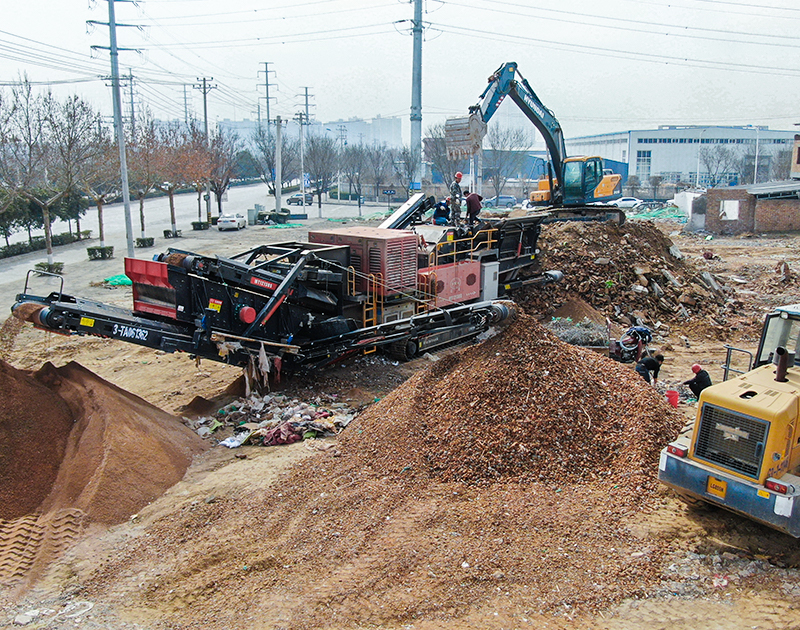
A mobile crusher integrates feeding, crushing, screening, and conveying into one unit. Demolished concrete can be reused directly on site — for example, in road and highway reconstruction or large industrial projects.
This eliminates the need for material transportation, reduces fuel consumption, and speeds up the recycling process.
Mobile crushers are widely used in:
- Road and bridge demolition projects
- Municipal solid waste recycling
- Temporary or small-scale construction sites
FTM Machinery provides complete solutions for recycled concrete crushing and screening plants — from full-size fixed machines to high-capacity mobile equipment. Contact us today
What is RCA concrete used for?
In many construction projects, recycled crushed concrete can replace up to 30–50% of natural concrete, gravel, or rock aggregates, bringing higher profitability and sustainability.
Types of recycled concrete aggregates:
- Unprocessed recycled concrete aggregate: Produced through simple crushing only. It may contain impurities and residual mortar.
- Processed recycled concrete aggregate: Undergoes additional steps such as crushing, screening, magnetic separation, and washing. The result is a cleaner, well-graded aggregate suitable for direct use in construction.
Applications of processed RCA concrete aggregate
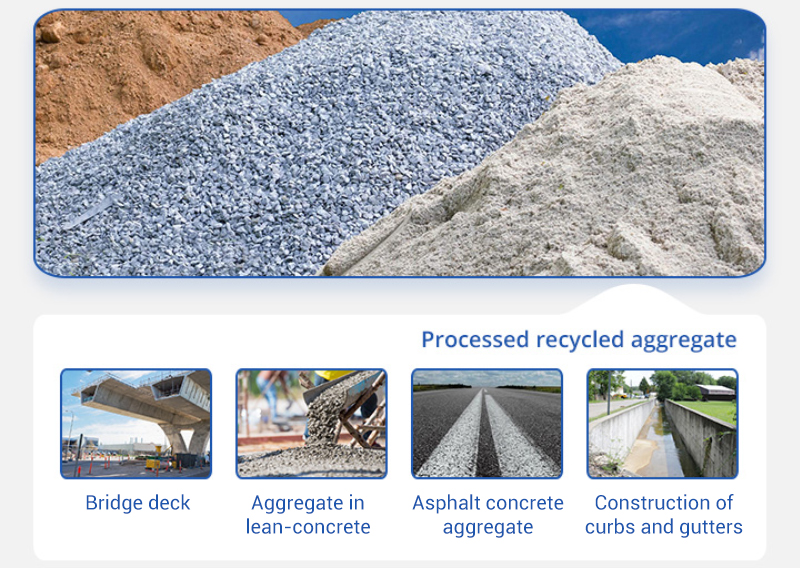
- Bridge deck and road base construction
- Lean or non-structural concrete mixes
- Asphalt concrete aggregate
- Road shoulders, barriers, sidewalks, curbs, and drainage channels
- Fine RCA (<5 mm) for road repair and utility trench backfilling
Applications of unprocessed RCA concrete aggregate
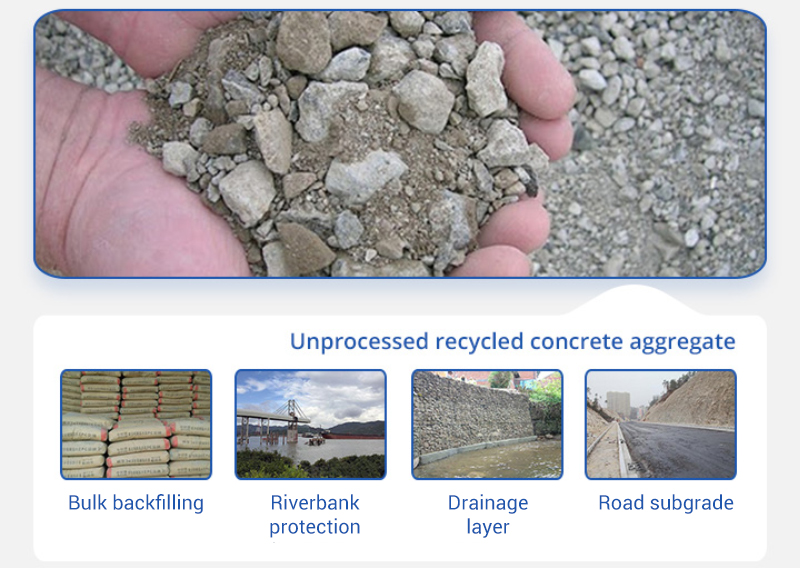
- Bulk backfilling and embankment projects
- Riverbank protection and slope stabilization
- Drainage layer and sub-base fill
- Road subgrade and secondary fill material
FAQs
1. What are the advantages of recycled aggregate?
- a: Save cost — RCA concrete is much cheaper than natural aggregate concrete, helping you build a solid foundation at a lower cost.
- b: Save natural resources — Recycling concrete reduces the need for new raw materials, protecting gravel resources and the environment.
- c: Save time — A fully automated, PLC-controlled mobile crushing plant can quickly produce recycled aggregates, while reducing transportation needs and fuel consumption.
- d: Save land — Recycling waste concrete eliminates landfill disposal, freeing valuable land resources for better use.
2. Is recycled concrete aggregate as strong as natural concrete?
- RCA concrete strength mainly depends on the water/cement ratio, replacement percentage, and quality of the recycled concrete aggregate.
- If the original concrete was strong, the RCA concrete can reach or even exceed the compressive strength of natural concrete.
3. Is recycled concrete cheaper than gravel?
- Yes — recycled concrete is usually cheaper than natural gravel because it uses waste material and requires less mining and transportation.
4. Does RCA concrete crack more easily?
- RCA concrete beams may have slightly wider cracks but smaller crack spacing compared to natural aggregate concrete.
- These differences are minor and do not affect structural performance, so RCA is fully suitable for structural concrete applications.


